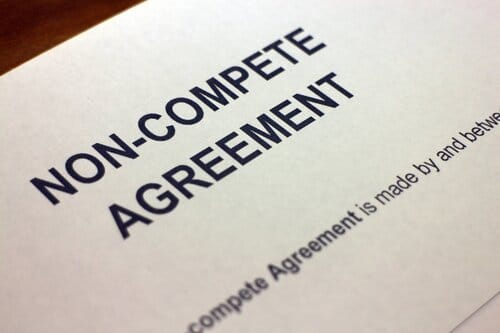A non-compete is a restrictive agreement prohibiting former employees from working for a competitor of their former employer, or to otherwise compete with them. As employees reenter the job market or start their own businesses as a result of COVID-19, the viability of their non-competes may be a growing concern in the coming months. Below are common non-compete scenarios that employees and employers might face.
1. Employees Currently Under a Non-Compete
In Maryland, non-competes are generally unenforceable if they are more restrictive than reasonably necessary. Non-competes may not impose undue hardships on the former employee or the public. During a time of unprecedented unemployment, employees might be able to argue that that their non-competes impose unacceptable hardships on their ability to get a new job. Moreover, given the current need for workers in essential sectors (e.g., healthcare), a former employee could argue that the benefits of their non-compete agreement is currently outweighed by the costs it imposes on the public.
2. Furloughed Employees
If a furlough turns into a termination, an employee should carefully review the terms of their non-compete, as it might not apply under these circumstances. Some non-competes specify that they are unenforceable unless an employee is terminated “for cause.” Additionally, an employee may be able to argue that the clock on their non-compete should start running from the time their furlough began, and not the time of their termination.
3. Employers
An employer who knowingly hires an employee under a non-compete could be liable for interfering with an employment contract. They may also have to battle an injunction to enforce the non-complete and could lose their new hire. However, it is possible that under the unique circumstances created by the COVID-19 pandemic, judges may decide that some non-competes are unduly burdensome and won’t punish hiring employers.
4. New Hires
Given the current job market, new hires won’t have much leverage to push back against a request to sign a non-compete. However, a potential strategy is to sign a contemporaneous affidavit testifying to the specific circumstances under which the agreement was signed. If an employee can show that the agreement was signed under duress, a court might be hesitant to enforce the agreement.
Finally, a non-compete agreement could potentially be invalidated under the doctrines of force majeure, impossibility, or frustration of original purpose (see here for more information).
If you have any questions related to non-competes, or any other aspect of employment law, contact Thatcher Law Firm at 301-850-1246. www.ThatcherLaw.com. Email us at [email protected].

